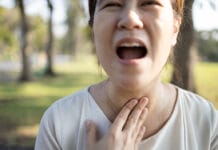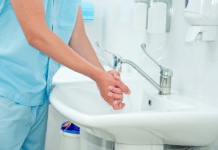Does anybody feel like insurance companies have a vague resemblance to a scamming scheme? You pay month after month for an illusory sense of security. If something should happen on the off chance the worst-case scenario does arise, there is a huge deductible. Or worse, the insurance denies your claim for a reason found in the small print on the back of an inconspicuous page in the Dostoyevsky-sized novel of an explanation of benefits.
But maybe that’s just me.
Aside from learning a completely new set of clinical skills in hygiene school, we are also given a few lessons on life skills and career enrichment. One such lesson is on the topic of disability insurance. At first glance, it’s an absolute necessity for all hygienists who have half a brain and an ounce of concern for the proactive lifestyle. After all, we are all about prevention and being proactive.
In a nutshell, disability insurance can replace your paycheck (that reflects a full-time position, mind you) in the (unlikely?) event of an injury that will affect your ability to work as a hygienist.
Upon closer examination though, is it really all that amazing?
Leave no trace?
If you can jog your memory back to your school days, a huge red flag raised by beloved instructors about disability insurance (and well-known in the dental hygiene community) is “leave no trace!” What does that mean? It means that, if you ever feel like having a spa day and getting a relaxing massage, if you’re trying out a chiropractor for some minor aches, if, by golly, you got a gift certificate in your name to experiment with acupuncture, you’d better ask your friend to leave your name off the certificate, pay in cash, or use your husband’s name at the spa.
Why all the secrecy? Three words: “leave no trace!” The not-so-wonderful thing about disability insurance is they could use any of the aforementioned procedures as a stipulation for denial of a claim. “You had two massages over the course of five years? That’s a pre-existing condition. Your claim is denied. Sorry, not sorry.”
To be fair, I am not speaking from personal experience (thankfully). There certainly is a stigma around the subject, though. Time and again, I hear hygienists talking about getting a massage, and the conversation goes a little like this:
“I got a massage this weekend, it was so great!”
“You paid in cash, right?”
(Nervous chuckle from both parties.)
It just doesn’t make sense. In a way, the whole scenario mirrors preventive dentistry. We try to prevent “injury” to teeth by cleaning them regularly and educating people on proper home care. One would think that it’s the same situation in preventing a disability. We try to prevent injuries to our muscles, tendons, and skeletal structure by regularly getting massages, adjustments, etc. Right? Wrong, apparently.
What a choice, eh?
You see, when you take in the big picture, you will be able to draw out a simple conclusion: You either take care of your body now to prevent an occupational injury, or you work yourself to the bone until you get an injury and cash out on your disability insurance. Don’t forget to consider the quality of life when you can’t use your wrist to the fullest extent or walk around with a constant ache in your back. Hey, at least you’re getting paid! (Just a hint of sarcasm there.)
So, what will it be for you? A healthy, proactive lifestyle or a “run it into the ground” approach? (Not recommended for cars, personal choice for humans.)
In an ideal world, it would even benefit disability insurance companies to encourage policyholders to take care of themselves regularly to avoid having to pay exuberant amounts of money for disability claims. Perhaps at a slightly higher premium, each party can get the best of both worlds: the insured can maintain a healthy quality of life throughout their career, and the insurer can save millions on disability claims that will logically decrease in number with this more proactive approach.
So, if you are a disability insurance company and are perusing this article, you are welcome in advance for this brilliant idea.
Now, if you are a young hygienist and feel this article does not apply to you, be forewarned, injury is inevitable if you are not proactive about preventing it. It’s like periodontal disease – you don’t really feel it until teeth start falling out and by then you are far from the path of prevention!
If you are a seasoned veteran and feel this article is written too late for you to take action, take heart! We can always make a difference, even if it means just signing a petition to change how disability insurance works. As I say to my patients (particularly the ones who don’t have much dentition to speak of), “As long as you are alive, there is always something to take care of!”
We are highly valued when it comes to taking care of people’s teeth; let’s reciprocate that value onto ourselves and take care of our bodies!










